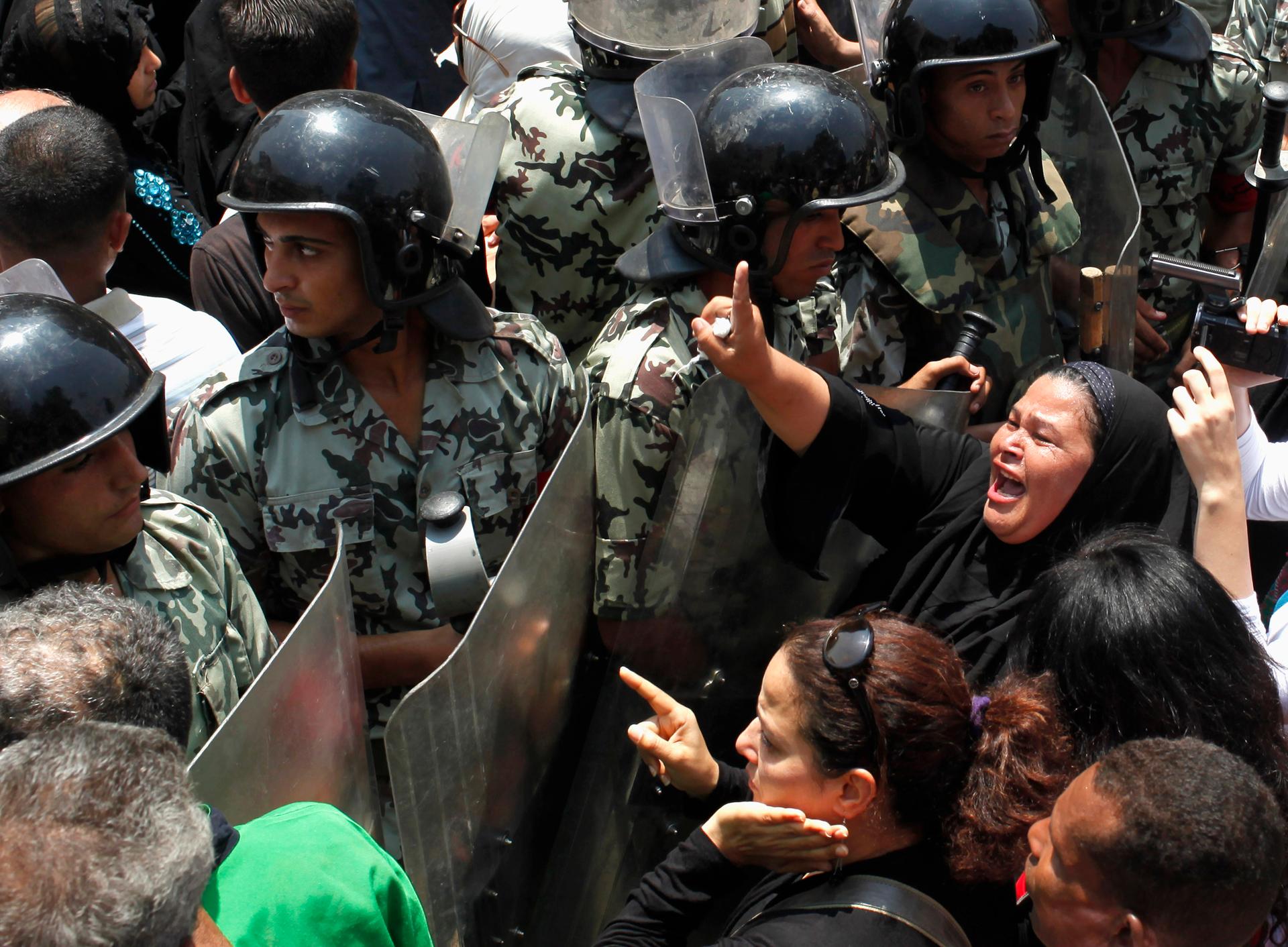Erupting violence on Sinai Peninsula tests Egypt’s new president
Relatives cry during a funeral in Cario for soldiers killed during an attack at a checkpoint along the Sinai border with Israel by unknown gunmen. (Photo by Asmaa Waguih/Reuters.)
Recent violence on the Sinai Peninsula has emerged as one of the first tests for President Mohamed Morsi, an Islamist, as he struggles to deal with the largely secular Egyptian Army and put an end to the crisis.
Sixteen Egyptian soldiers were killed Sunday by unknown militants. On Tuesday night, gunmen open fired on at least seven government checkpoints in what appears to be a carefully planned attack.
The military responded within hours, deploying attack helicopters to the peninsula Wednesday morning. The retaliatory strikes reportedly killed 20 people, but that number has been difficult to corroborate.
Though the air strikes in Sinai were the first in decades by the Egyptian military, they were the latest in a long line of conflicts on the peninsula.
Home to the biblical Mount Sinai, the peninsula has considerable geopolitical significance. Its precarious position between Egypt and Israel has made it the center of long-lasting tensions between the two countries. Much of the Six-Day War was fought there in June 1967.
Now, just two months into his presidency, Morsi is facing one of the first crises of his term.
Anne-Marie Slaughter, an international relations professor at Princeton University, says the crisis comes at a sensitive time for the new president.
“He’s engaged in a complicated set of relations establishing his power base with respect to the military,” she said. “It seems very unlikely to me that the military is going to do anything dramatic with respect to his actions, even if he has not brokered this deal with them.”
Morsi has fired numerous security officials, including the governor of Sinai. Some people see it as an attempt to distance himself from the previous regime of Hosni Mubarak, which maintained a brutal reputation on the peninsula.
Security can be established in Sinai, Slaughter says, so long as the situation doesn’t escalate too far.
“Certainly, we don’t want Israel having to intervene,” she said. “This is a situation that can be pacified if need be.”
Sinai has long been a pipeline for supplies sent to the Gaza Strip, the Palestinian territory in southernmost Israel. Slaughter said the change in the Egyptian administration could increase tensions there.
“The previous military government was blocking the smuggling tunnels,” she said, adding that it “effectively was trying to help protect Israel’s security.”
But things are much different with Morsi and his prime minister, Hesham Kandil, in power.
“Now you have a Muslim Brotherhood prime minister who is much cooler toward Israel,” Slaughter said. “He doesn’t want conflict, but is likely to be more sympathetic to Hamas.”
Slaughter emphasized both the Israelis’ willingness and capacity to help the Egyptians quell further violence. She said Israel had made it clear that when it came to its own security, it will protect itself if another country fails to do so.
“Israel is going to do everything possible to allow Egypt to solve this problem and to support the Egyptians with intelligence aimed at rooting out these militants,” she said. “But if that doesn’t happen, then Israel will act directly.”
We want to hear your feedback so we can keep improving our website, theworld.org. Please fill out this quick survey and let us know your thoughts (your answers will be anonymous). Thanks for your time!
